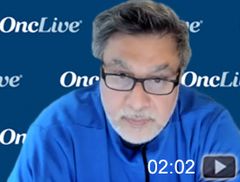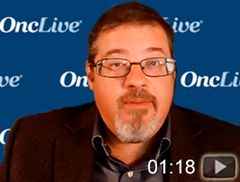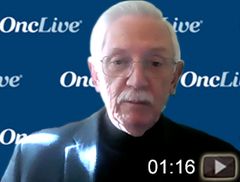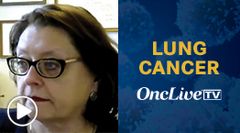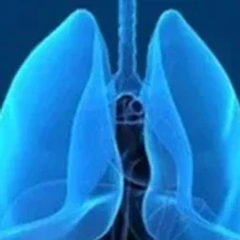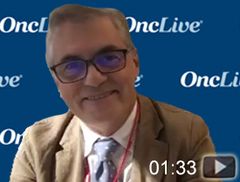
Scientific Interchange & Workshop
- The Evolving Role of Immunotherapy in Metastatic Non–Small Cell Lung Cancer
- Volume 1
- Issue 1
Dr. Garon on Immunotherapy Treatment Considerations in NSCLC
Edward B. Garon, MD, discusses immunotherapy treatment considerations for patients with non–small cell lung cancer.
Episodes in this series

Edward B. Garon, MD, an associate professor of medicine at the David Geffen School of Medicine, University of California, Los Angeles, discusses immunotherapy treatment considerations for patients with non–small cell lung cancer (NSCLC).
It is important to know whether a patient has an EGFR mutation or an ALK rearrangement, as this indicates whether they should receive a targeted therapy; however, how this applies to other mutations is less clear, according to Garon.
Aside from mutational status, PD-L1 status is another consideration that must be made when selecting an immunotherapy agent in this patient population, Garon adds. PD-L1 is a marker that is widely available and able to be assessed through immunohistochemistry testing, the results of which come back fairly quickly, Garon notes. There are 3 classifications of PD-L1: no expression, expression of less than 50%, and expression of 50% or more, Garon notes.
New data indicate that even with these strata, there are advantages to having a high PD-L1 status rather than having an expression of 50%, Garon concludes.
Articles in this issue
almost 5 years ago
Dr. Heymach on the Future of Immunotherapy in NSCLC

